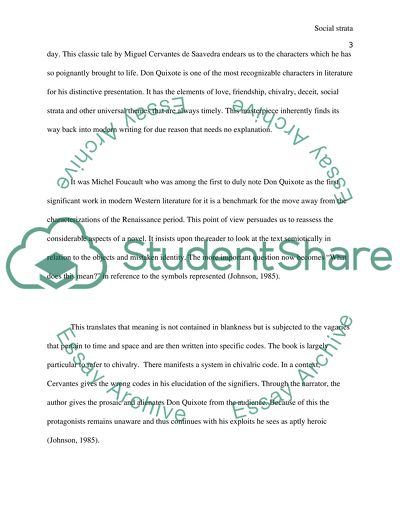Cite this document
(Social Strata and its Apparence in Don Quixote de la Mancha Case Study, n.d.)
Social Strata and its Apparence in Don Quixote de la Mancha Case Study. https://studentshare.org/literature/1554150-cervantess-emphasis-on-the-disparities-between-class-and-worth-in-don-quixote-contrasting-the-duke-and-duchesss-thoughtless-malice-and-sanchos-anxiety-ridden-compassion
Social Strata and its Apparence in Don Quixote de la Mancha Case Study. https://studentshare.org/literature/1554150-cervantess-emphasis-on-the-disparities-between-class-and-worth-in-don-quixote-contrasting-the-duke-and-duchesss-thoughtless-malice-and-sanchos-anxiety-ridden-compassion
(Social Strata and Its Apparence in Don Quixote De La Mancha Case Study)
Social Strata and Its Apparence in Don Quixote De La Mancha Case Study. https://studentshare.org/literature/1554150-cervantess-emphasis-on-the-disparities-between-class-and-worth-in-don-quixote-contrasting-the-duke-and-duchesss-thoughtless-malice-and-sanchos-anxiety-ridden-compassion.
Social Strata and Its Apparence in Don Quixote De La Mancha Case Study. https://studentshare.org/literature/1554150-cervantess-emphasis-on-the-disparities-between-class-and-worth-in-don-quixote-contrasting-the-duke-and-duchesss-thoughtless-malice-and-sanchos-anxiety-ridden-compassion.
“Social Strata and Its Apparence in Don Quixote De La Mancha Case Study”. https://studentshare.org/literature/1554150-cervantess-emphasis-on-the-disparities-between-class-and-worth-in-don-quixote-contrasting-the-duke-and-duchesss-thoughtless-malice-and-sanchos-anxiety-ridden-compassion.


